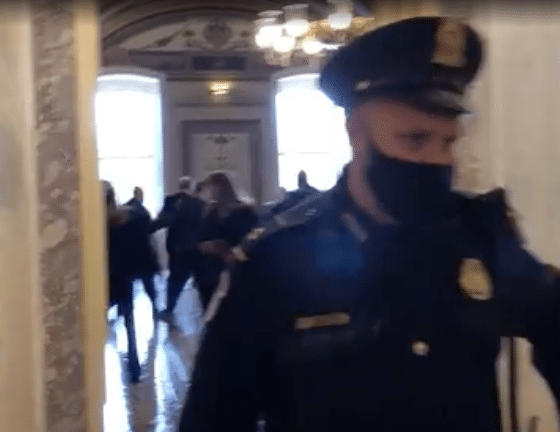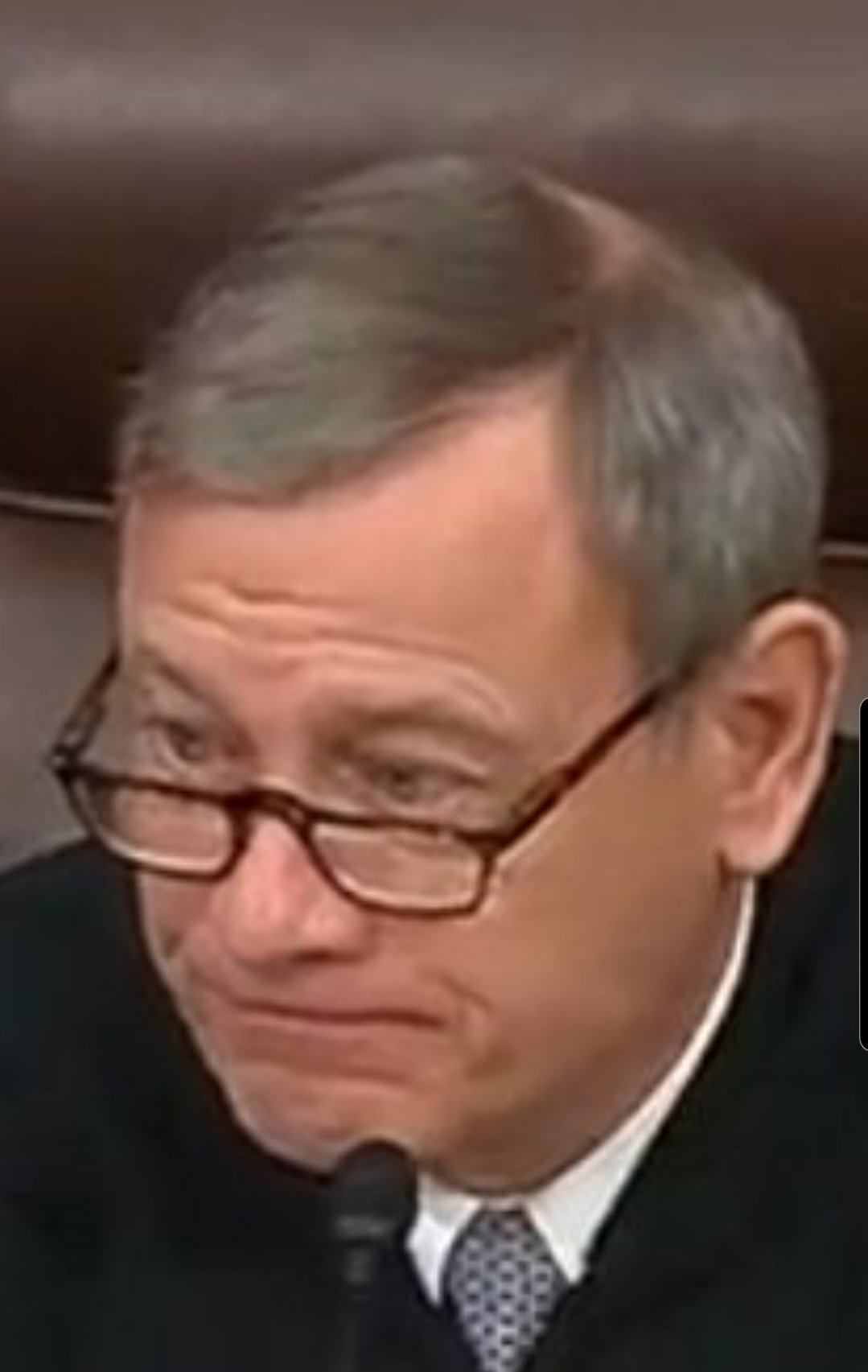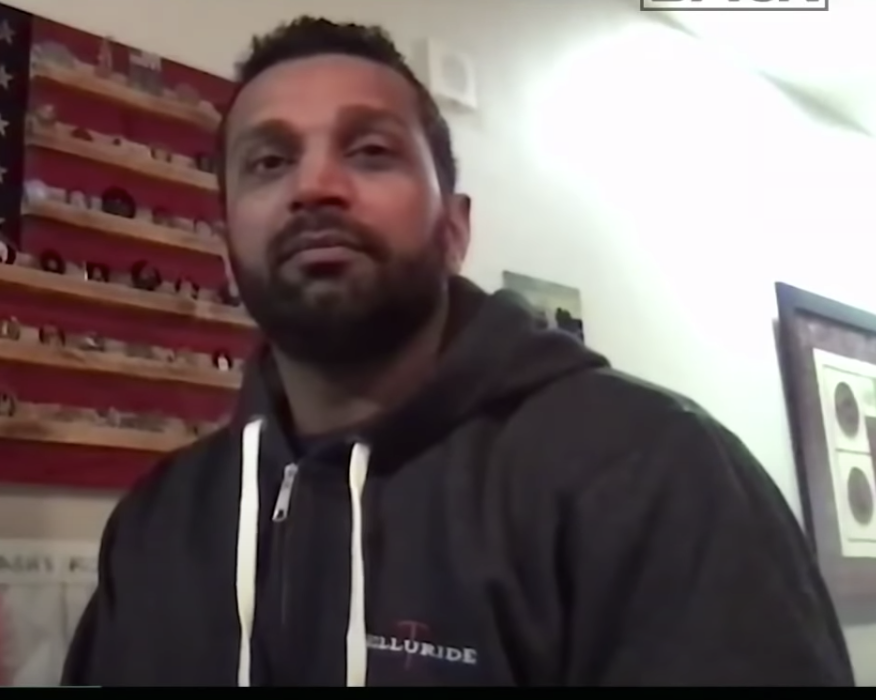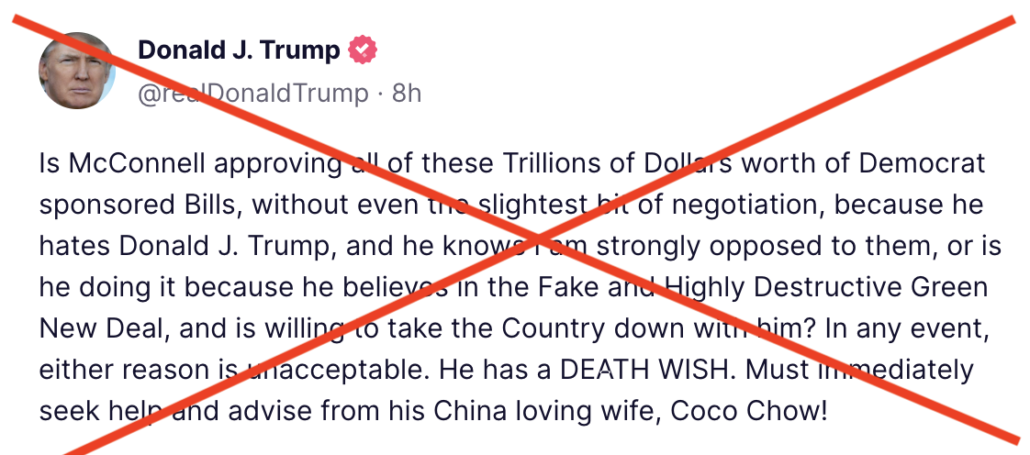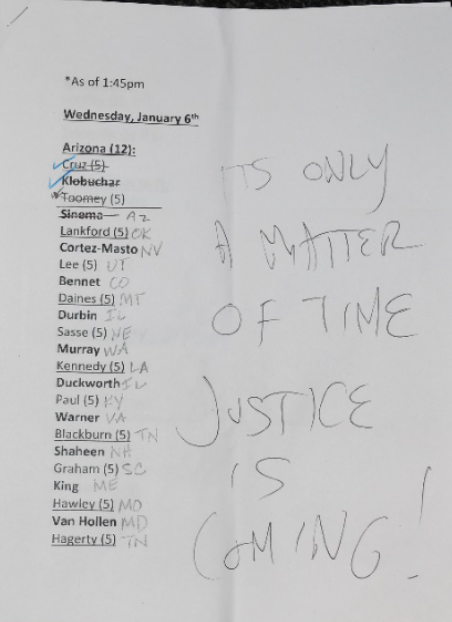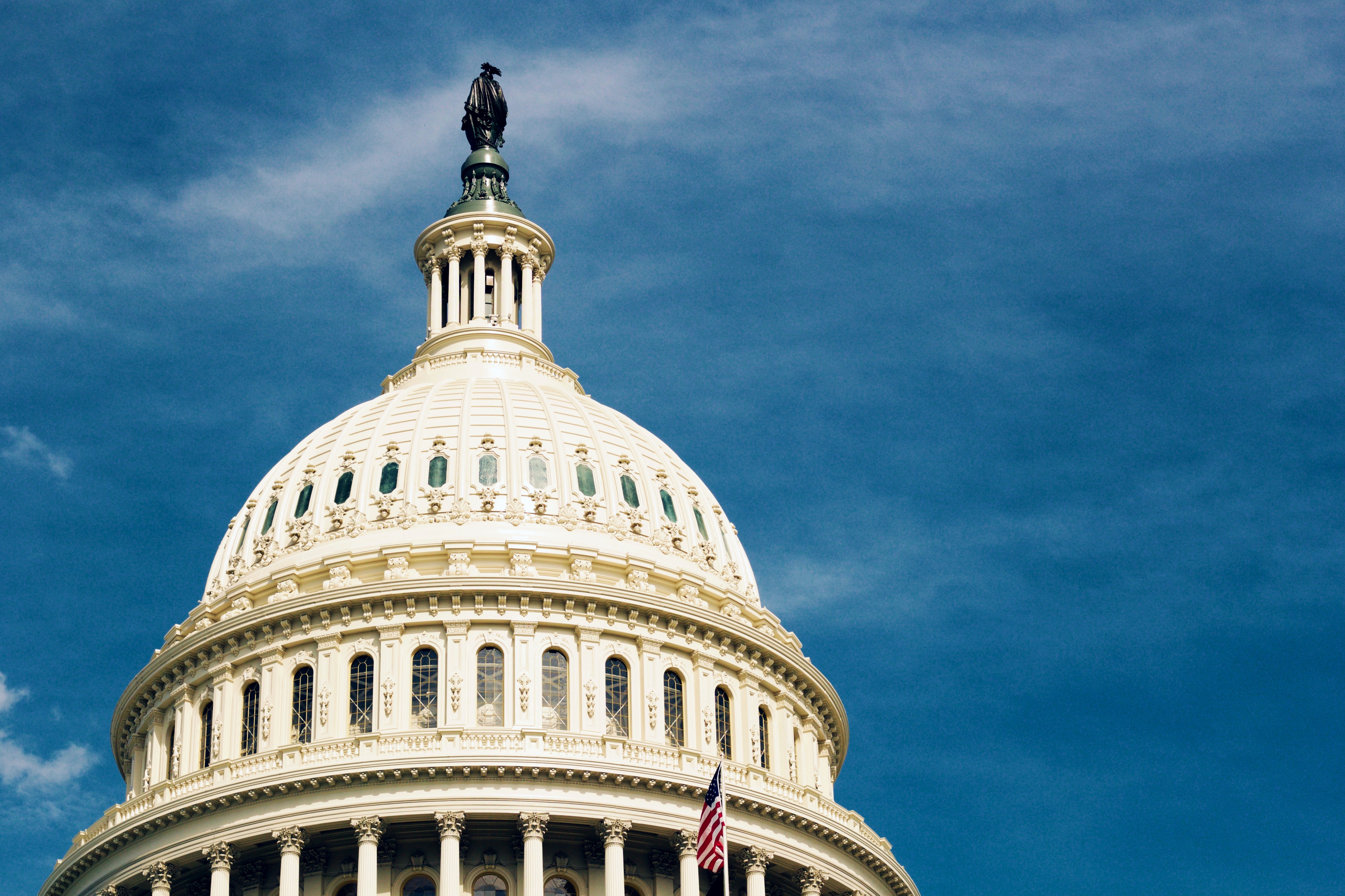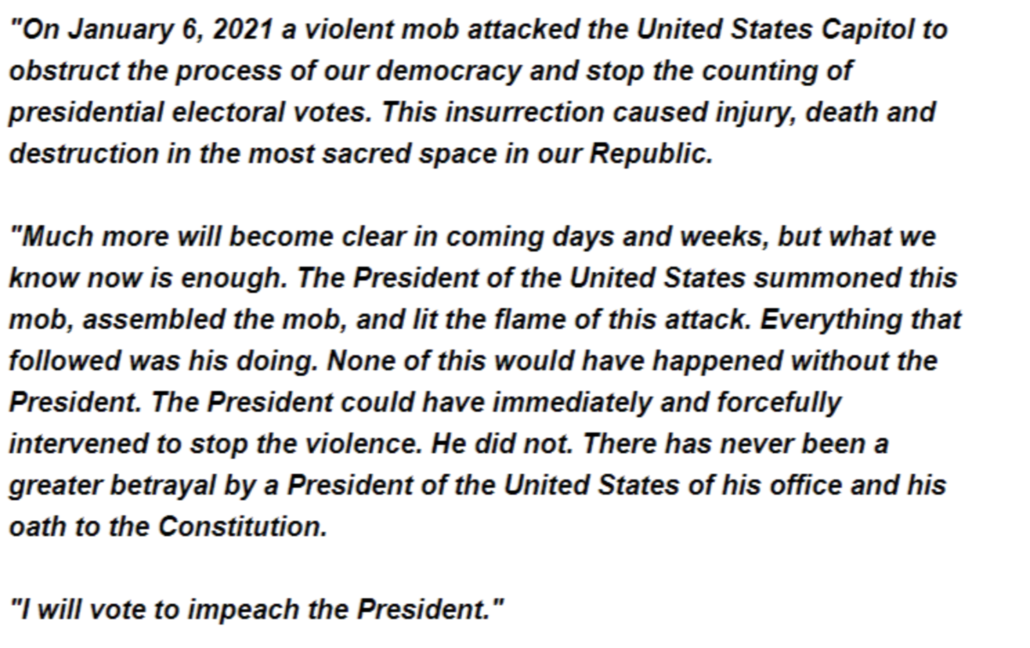Randolph Moss, serving as Assistant Attorney General for OLC in 2000, famously wrote the following:
Our view remains that a sitting President is constitutionally immune from indictment and criminal prosecution.
Less famously, however, the first 11 pages of that more famous memo rely on this earlier OLC memo from Moss:
We conclude that the Constitution permits a former President to be criminally prosecuted for the same offenses for which he was impeached by the House and acquitted by the Senate while in office.
Even less famous are words Moss released last Tuesday, now presiding as a judge over a January 6 prosecution, ruling that obstruction, 18 USC 1512(c)(2), clearly applies to the official Congressional proceeding to certify the vote count on January 6, 2021.
Hard cases may make bad law. But easy cases ought not.
For these reasons, the Court rejects Defendants’ contention that the joint session of Congress convened to certify the electoral vote is not a “proceeding before the Congress.”
Those legal documents are all useful background to my response to this Austin Sarat op-ed, opining that DOJ should not prosecute Trump for his actions related to January 6.
I worry that going forward with even a well-grounded prosecution of Trump would almost certainly turn him into a martyr, fuel a furious attack on the Biden Justice Department for using prosecution as a political weapon, spur violent outbursts, and plunge this country ever closer to the abyss which it seems to be fast approaching.
“An investigation and potential indictment and trial of Mr. Trump,” Eric Posner warns, “would give the circus of the Trumpian presidency a central place in American politics for the next several years, sucking the air out of the Biden administration and feeding into Mr. Trump’s politically potent claims to martyrdom. Mr. Trump will portray the prosecution as revenge by the ‘deep state’ and corrupt Democrats.”
This difficult judgment does not mean that Attorney General Garland should do nothing.
He can serve justice by building on the work of the House committee and helping to fully develop the facts of what Trump did in the lead up to and on January 6. Garland should present those facts clearly, logically, and with irrefutable documentation. And he should do what McConnell and Graham suggested in February by citing chapter and verse the numerous federal criminal laws that Trump violated.
First, some background.
Unless you went to Amherst College, you may never have heard of Sarat. He created a Law and Society program there and has served as a Dean. I’ve had conversations a number of prominent and not-so prominent lawyers who graduated from Amherst during Sarat’s tenure — some you’ve heard of!! — who have spoken of the great influence the professor has had on their career. And while I’m not a lawyer, like many of those lawyers, I first learned to read a legal document from Sarat.
Over thirty years ago in a class on how the state regulates sexuality, Sarat assigned me to read Griswold v Connecticut and Roe v Wade alongside Tolstoy and Kiss of the Spider Woman, the latter of which I taught on my own right and included in my dissertation years later. Sarat taught me critical skills you may benefit from at this site.
My complaint with Sarat’s argument is that he violates the rule he taught me so many years ago: He didn’t read the relevant legal documents before writing this op-ed. The sources he links in his op-ed are:
- Watergate prosecutor Jill Wine-Banks’ MSNBC appearance addressing the issue
- A column on a June 2021 Rachel Maddow appearance in which she suggested the House could send a criminal referral to DOJ
- An article about a bunch of people responding to Liz Cheney’s invocation of obstruction (the same statute Moss ruled on), which itself betrays that those people quoted in the article missed how obstruction was already being used in DOJ’s prosecution
- Lawrence Tribe’s column that is riddled with factual errors that make it clear Tribe is unfamiliar with the public record
- Mitch McConnell’s speech, justifying why he was voting against impeaching Trump, noting that he could be criminally prosecuted
- Lindsey Graham’s comments making the same argument: that Trump should not be impeached but could be prosecuted
- A report on DC District Attorney Karl Racine’s comments that Trump could be charged with a misdemeanor
- A BoGlo op-ed that calls for prosecution but envisions Trump’s vulnerability with regards to January 6 to pertain to incitement
- A NY Mag piece that includes obstruction among the possible laws Trump may have broken, but claims that DOJ, “seems to be pursuing misdemeanor trespass cases at the Capitol more aggressively than potential felony charges for Trump,” which misunderstands how DOJ appears to be using misdemeanor arrests (and indeed, how those witnesses would be necessary to any Trump prosecution)
- A Ryan Cooper piece that states as fact that Garland’s DOJ, “is enabling Republican lawlessness through its pathetic unwillingness to prosecute Trump and all his cronies for their crimes against democracy;” Cooper makes no mention of the Tom Barrack prosecution, and while he invokes Rudy Giuliani he doesn’t mention the decision — seemingly made in Deputy Attorney General Lisa Monaco’s first days — to seize Rudy Giuliani’s phones and spend 8 months getting a privilege review on the contents of Rudy’s phones right through April 2021
- A law review article on prosecutorial discretion
- Robert Jackson’s seminal text about the role of a Federal prosecutor
- The Bordenkircher precedent on plea negotiations that upholds prosecutorial discretion
- The quip, “hard cases make bad law”
- An Eric Posner op-ed published before Trump attempted a coup
Some of these things — the Bordenkircher opinion, McConnell and Graham’s comments suggesting Trump could be prosecuted, and Robert Jackson — are important primary sources. But most of the rest are secondary sources, and many of them — notably Tribe and Cooper — are demonstrably wrong on the facts because they didn’t consult available primary sources.
And as a result of consulting erroneous sources like Tribe, Sarat misunderstands the case before him.
For example, many of Sarat’s sources imagine that Trump’s biggest criminal exposure is in incitement and not the same obstruction charge with which well over 200 insurrectionists have already been charged and to which at least a dozen people have already pled guilty (most of them even before Moss and his colleagues upheld the application in recent weeks). Nine pled guilty to obstruction as part of cooperation agreements and several of those cooperators interacted with Roger Stone in the days and hours leading up to the assault on the Capitol.
Many of Sarat’s sources assume that DOJ couldn’t get to Trump except for the work the January 6 Committee is doing.
In spite of Garland’s repeated claims that his DOJ would pursue the January 6 investigation wherever the evidence leads — including at an appearance where he discussed that famous Moss memo that relies so heavily on that less famous Moss memo — Sarat suggests that Garland would have to launch an investigation, one entirely separate from the investigation already in progress, anew. “Based on what we now know, there appears to be ample reason for Attorney General Merrick Garland to launch a criminal probe of Trump.” That is, Sarat treats the question before him as whether Merrick Garland should take to a podium and announce, “we are investigating the former President,” and not whether DOJ should continue the investigation(s) that it already has in progress, working to prosecute organizer-inciters like Alex Jones’ side-kick Owen Shroyer (who helped lure mobsters to the Capitol) and flipping low-level conspirators to build the case against more senior conspirators, conspirators whose ties to Trump associates like Jones and Stone have already been raised in court documents.
The question is not whether DOJ should open an investigation into Donald Trump. The question is whether, if and when DOJ accumulates enough evidence — surely helped by Select Committee efforts but in no way relying entirely on them — to show probable cause that Trump conspired with others to prevent Congress from certifying the vote on January 6, 2021, to charge him like DOJ has already charged hundreds of others.
And that question is significantly a question about equity.
The question is whether, if Paul Hodgkins has to serve eight months in prison for occupying the Senate while waving a Donald Trump flag around (Hodgkins is already three months into that sentence), Donald Trump should be prosecuted as well.
The question is whether, if Jacob Chansley has to serve 41 months in prison (Chansley has been in jail since January 9, 2021) for occupying the Senate dais, in defiance of orders from a cop, with a spear and a blowhorn and leaving a message for Mike Pence reading, “It’s Only A Matter of Time. Justice Is Coming!,” Donald Trump should be prosecuted as well.
The question is whether, if Kevin Fairlamb has to serve 41 months in prison (Fairlamb has been in jail since January 22, 2021) for punching one of the cops protecting the Capitol “with the purpose of influencing, affecting, and retaliating against the conduct of government by stopping or delaying the Congressional proceeding by intimidation or coercion,” Donald Trump should be prosecuted as well.
The question is whether, if Gina Bisignano faces 41 months for traveling to DC boasting, “The insurrection begins,” marching to the Capitol while narrating her actions — “we are marching to the Capitol to put some pressure on Mike Pence” and “I’m going to break into the Capitol” — and then helping to break a window to get into the Capitol, Trump should be prosecuted as well.
The question is whether, if Matthew Greene faces 41 months in prison for — months after Trump instructed the Proud Boys to “stand back and stand by” — joining the Proud Boys in an orchestrated assault on the Capitol in hopes, “that his actions and those of his co-conspirators would cause legislators and the Vice President to act differently during the course of the certification of the Electoral College Vote than they would have otherwise,” Donald Trump should be prosecuted as well. Greene has been in jail since April 21, 2021.
The question is whether, if Jon Schaffer faces 41 months for, after learning “that Vice President Pence planned to go forward with the Electoral College vote certification,” forcibly storming the Capitol armed with bear spray, Trump should be prosecuted as well.
The question is whether, if Josiah Colt faces 51 months because, after he, “learned that the Vice President had not intervened to stop the certification of the Electoral College vote,” he stormed the Capitol, broke into the Senate, and then occupied Pence’s chair, Donald Trump should be prosecuted as well.
The question is whether, if Graydon Young faces 63 months because he barged into the Capitol as part of a stack of kitted out militia members with the purpose of “intimidating and coercing government personnel who were participating in or supporting” the vote certification, Donald Trump should be prosecuted as well.
At this point, there’s no way to avoid the things Sarat would like to avoid by merely talking about Trump’s crimes rather than prosecuting them, to say nothing of the way that would violate DOJ rules prohibiting doing so. That’s true, in large part, because Trump is claiming martyrdom for those who did his dirty work. Between right wing lawyers swooping in to push defendants to renege on their guilty pleas, continued efforts by defendants’ co-conspirators to claim they were all set up by the Deep State, and schemes to profit off continued propaganda in support of Trump, every one of these cases involves some of the things that Sarat fears would occur if Trump, too, were prosecuted. Trump has a press conference scheduled for January 6 that will undoubtedly do some of the things Sarat would like to stave off. That din will only get louder as trials start in February. The claims of martyrdom are already baked into this investigation, and so would be better addressed by a direct debunking rather than a belated attempt at avoidance, not least because white terrorists have a history of undermining prosecutions by claiming martyrdom.
But there’s another reason, besides equity, that demands that DOJ prosecute Trump if prosecutors can collect the evidence to do so.
All five of the opinions (Dabney Friedrich, Amit Mehta, Tim Kelly, James Boasberg, plus Moss) upholding the application of obstruction to the vote certification have some discussion of what separates “corrupt” efforts to obstruct the vote count from political lobbying or civil disobedience. The discussion entails whether corruption requires an attempt to corrupt someone else, or whether it only involves corruptness in one’s own actions. A number of these opinions take an easy route, stating simply that the defendants in question are alleged to have broken the law in other ways in their efforts to obstruct the vote count, which gets past corruptness in one’s own actions, so a further analysis of whether legal actions might amount to obstruction is unnecessary as applied to those defendants. That’s an intransitive understanding of the corrupt purpose necessary to obstruction.
All stop short of where James Pearce, the prosecutor guiding this adoption of 1512(c)(2), went in responding to a question from Trump appointee Carl Nichols; Pearce stated that one way an unnamed person just like Trump might act corruptly would be by asking someone else to violate their duty: If that person, “calls Vice President Pence to seek to have him adjudge the certification in a particular way … knowing it is not an available argument [and is] asking the vice president to do something the individual knows is wrongful … one of the definitions of ‘corruptly’ is trying to get someone to violate a legal duty.” That’s a transitive kind of corruption, an attempt to get someone else to violate their oath. Even some of the confessed obstructors listed here (most notably, the first Proud Boy to plead guilty) were knowingly doing that.
But there’s a third option. In his opinion on the application of 1512(c)(2), somewhat uniquely among the five opinions upholding the application thus far, former OLC head Judge Moss ruled that if the use of illegal activity to interrupt the vote count weren’t enough to distinguish between normal protests and obstruction, then the court could turn to whether the defendants (whom, in this case, you’ve likely never heard of) were attempting to obtain an improper benefit for themselves … or someone else.
To the extent any additional guardrail is necessary, other recognized definitions of the term “corruptly” both fit the context of the obstruction of a congressional proceeding and provide additional guidance. In his separate opinion in Aguilar, for example, Justice Scalia quoted with approval the jury instruction given by the district court in that case: “An act is done corruptly if it’s done voluntarily and intentionally to bring about an unlawful result or a lawful result by some unlawful method, with a hope or expectation of . . . [a] benefit to oneself or a benefit to another person.” 515 U.S. at 616–17 (Scalia, J., concurring in part and dissenting in part). Because the Aguilar majority ruled on other grounds, it did not opine on the meaning of “corruptly.” Id. at 598–603. But there is no reason to doubt Justice Scalia’s observation that formulations of this type are “longstanding and well-accepted,” id. at 616, and, indeed, the D.C. Circuit cited to a similar definition—“a person acts ‘corruptly’ when taking action ‘with the intent to obtain an improper advantage for [one]self or someone else, inconsistent with official duty and the rights of others’”—in United States v. Pasha, 797 F.3d 1122, 1132 (D.C. Cir. 2015) (quotation marks omitted) (quoting United States v. North, 910 F.2d 843, 882 (D.C. Cir. 1990), opinion withdrawn and superseded in other part on reh’g, 920 F.2d 940 (D.C. Cir. 1990)). In the garden-variety disruption or parading case, in contrast, the government need not prove that the defendant sought unlawfully to obtain a benefit for himself or another person in the proceeding itself. But, because the Court is persuaded that Defendants’ vagueness argument fails even without this refinement, and because the Court has yet to hear from the parties on the proper jury instructions, the Court will leave for another day the question whether this formulation—or a slightly different formulation—will best guide the jury.
This language likely came out of some ill-advised claims from the defense attorneys in question, who claimed there would be no injustice that could result from obstructing the certification of Joe Biden’s vote. The claim was ridiculous. It suggested that nullifying the votes of 81 million people and depriving Biden of his legal victory would create no victims.
But the comment brought the briefing before Moss to where it didn’t go (except to a limited degree before Kelly) in the other challenges.
The obstruction of the vote count on January 6, 2021 was corrupt because people put on body armor, broke into the locked Capitol, and beat up cops in an attempt to obstruct the certification of Biden’s victory — the intransitive corruption of the people who broke other laws to carry it out. It was corrupt because those who carried it out sought to intimidate people like Mike Pence to do what he otherwise refused to. But it was corrupt because the entire goal, shared by all the people charged with obstruction, was to declare Trump the victor in an election he didn’t win.
DOJ should not back off prosecuting Trump along with all those others charged in the same crime, some of whom (I believe DOJ will ultimately be able to prove) are co-conspirators with Trump in a large networked conspiracy, for the crime of trying to obstruct the certification of Joe Biden’s win. Judges, defense attorneys, and defendants themselves — including many of the trespassers — keep insisting that Donald Trump was the key participant in the crime they’re all pleading guilty to.
His improper advantage was undoubtedly the goal.
“What every prosecutor is practically required to do is to select the cases for prosecution and to select those in which the offense is the most flagrant, the public harm the greatest, and the proof the most certain,” Jackson told America’s US Attorneys in the famous speech Sarat cited. Those watching the DOJ investigation rather than just the Select Committee or some often ill-informed TV lawyers have raised real questions about whether DOJ has honored that advice, because so many hapless Trump dupes are being prosecuted for their role in attempting to interrupt the peaceful transfer of power (as I have laid out, there appear to be investigative reasons why DOJ has prosecuted the misdemeanants they have). But about one thing, Jackson had no doubt: “In the enforcement of laws that protect our national integrity and existence, we should prosecute any and every act of violation.”
As noted above, DOJ has thus far accused 275 people of obstructing the certification of Joe Biden’s victory (a good number of those have been permitted to plead down to a misdemeanor). DOJ has already decided that it will treat obstruction of the vote certification as a crime that endangers our national integrity. Charging Trump with obstruction would amount to holding the guy who stood to benefit to the same standard as those whose corrupt actions attempted to steal for him an improper advantage.
The question is not, as so many commentators who discovered the obstruction application only when Liz Cheney called their attention to it, whether to open an investigation into Trump. 700 people have already been charged in the investigation that might one day charge Trump. The question is whether to hold Trump to the same standard as the hundreds who have gone before him.
Prosecuting Trump may be the only way to confirm that Chansley and Bisignano and Colt and Young aren’t martyrs to Trump’s losing cause.
Other Posts
Because new readers are coming to this site via this post, I wanted to include some other overview posts about January 6 that may be helpful:
A Taxonomy of the [Visible] January 6 “Crime Scene” Investigation: This post explains what I understand the DOJ investigation to have accomplished in a year.
The Pied Piper of Insurrection, and Other Challenges in Charging the January 6 Organizer-Inciters: The 700 arrests thus far have been relatively easy, because everyone arrested was — at a minimum — trespassing on January 6. The next step of the investigation — arresting the organizer-inciters who themselves implemented Trump’s plans — is where DOJ will have to have more evidence of conspiracy or other corrupt mens rea supporting obstruction. This post looks at several of them.
Ten Things TV Lawyers Can Do Rather than Whinging about Merrick Garland: I can’t promise you DOJ will prosecute Trump or even Rudy Giuliani and Alex Jones. I can promise that if they were to charge Trump, it wouldn’t be before midterms. Complex investigations of very powerful people simply don’t work that fast. For that reason, among others, those spending their time whinging about Merrick Garland’s purported inaction would be better served finding some other way to save democracy. This post provides ten ways to do that.

